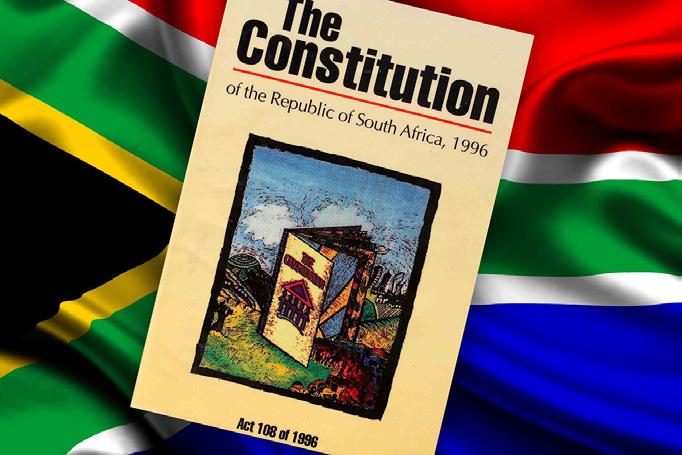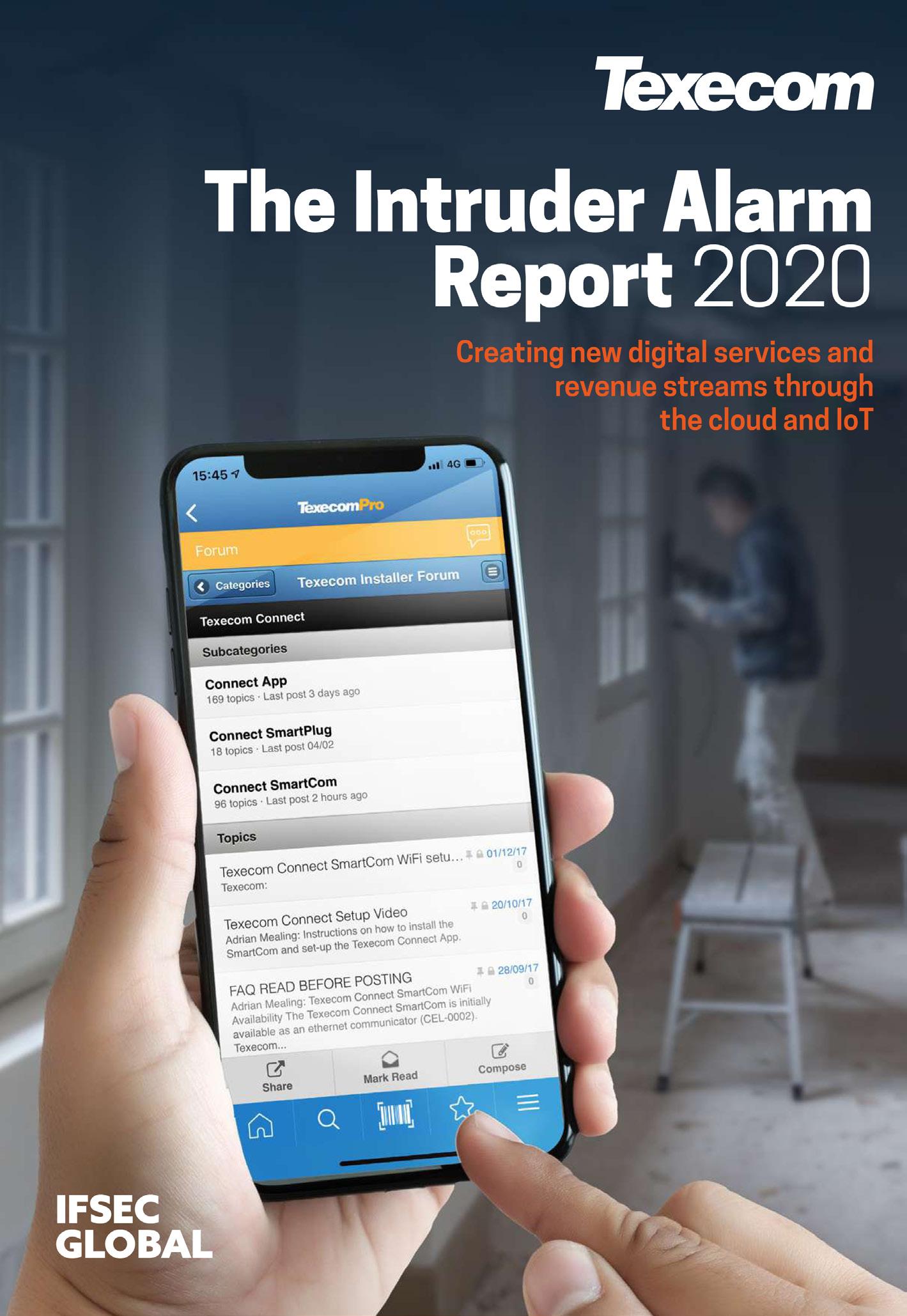
13 minute read
PSiRA update: Consumer obligations in terms of the Private Security Industry Regulation Act (Act 56 Of 2001
Consumer obligations
Advertisement
Government sector and consumers in general.
PRIVATE SECURITY INDUSTRY REGULATORY AUTHORITY
Eco Glades 2 Office Park, Block B 420 Witch Hazel Avenue Highveld, Ext 75 CENTURION, 0157 Tel: +27 12 003 0500 / 0501 (Switchboard) Email: info@psira.co.za Website : www.psira.co.za
1. Introduction
The Government views the regulation of the vast private security industry as key national importance in order to achieve and maintain a legitimate security industry. Proper regulation is intended to ensure a legitimate, trustworthy and competent private security industry which is optimally capable of contributing to the achievement and maintenance of sufficient levels of safety and security in our country.
The Private Security Industry Regulatory Authority (PSiRA) was established in terms of Section 2 of the Private Security Industry Regulation Act (56 of 2001) in 2002, hereinafter referred to as the “Act”. The strategic mandate of PSiRA originates from the Act and the regulations issued in terms thereof. In a nutshell, the primary objectives of PSIRA are to regulate the private security industry and to exercise effective control over the practice of the occupation of security service providers in the public and national interest and in the interest of the private security industry itself. The Act also binds the State.
2. Legal provisions of the Act
Basic to the regulation of the private security industry is the requirement that all those who fall within the definition of “security service provider” and who propose to render a “security service”, must comply with registration procedures and be registered before becoming active in the industry. This implies that the Act may set reasonable and appropriate registration requirements that must be satisfied by applicant security service providers. The basic objective is to achieve a trustworthy, legitimate and competent private security industry which has the effect that not all applicants will be able to secure legitimate entry to the industry and that the admission to or exclusion from the industry is based on proper grounds.
2.1 Obligation to register
Section 20 of the Act requires all persons (business and security officers) rendering a security service to register with PSiRA.
2.2 Security service providers who needs to register
The obligation to register includes the following categories or classes of security service providers as defined under the definition of “security service”: • Guarding sector; • Close protection officers; • Persons giving advice on security services, including the use of security equipment; • Response security; • Assets in transit; • Events/venue security; • Manufacturers, importers and distributors of monitoring devises; • Private investigators; • Security trainers; • Installers of security equipment; Persons repairing / servicing security equipment; Monitoring signals of electronic security equipment; Control room operators; Locksmiths; and Persons managing, controlling or supervising security services.
The security equipment referred to above includes, inter alia, the following: • Alarm systems; • Safes and/or vaults; • Satellite tracking devices, CCTV and other monitoring devices; • Devices used for intrusion detection, access control, bomb detection, fire detection, metal detection and x-ray inspection; and • Locksmith equipment.
The registration requirement therefore applies with regard to those falling within the following categories: • all-natural persons personally rendering a security service (whether as employee or otherwise) and includes in-house security; • all form of businesses which render a security service; and • natural persons involved in the executive management or governance of the said business.
2.3 Offences and penalties
Since the Act requires all persons rendering a security service to register with the Authority, the Act further provides for offences and penalties for non-compliance or contraventions.
In terms of section 38 (3)(a), any person who contravenes or fails to comply with section 20(1) of the Act, is guilty of an offence. Section 38(3)(a) provides for the following sanctions on conviction: (i) on a first conviction of a contravention, is liable to a fine or to imprisonment for a period not exceeding five years, or to both a fine and such imprisonment; (ii) on a second or subsequent conviction
2.4 Consumer obligations
In terms of section 38(3)(g) of the Act, persons (clients or consumers of security services) who knowingly or without the exercise of reasonable care contracts for the rendering of services contrary to the Act, are also guilty of a criminal offence. The Act therefore places an explicit legal onus on consumers of private security services to only use and/or contract with legitimate and registered security service providers. A client of a security business must therefore make a reasonable enquiry as to the legitimacy of the security business, its officials and persons deployed by it to provide a security service, before making use of its services or to continue to use its services.
3. Mechanisms used by PSiRA to ensure compliance
3.1 Monitoring and investigation
The Authority is empowered to inspect and investigate security service providers (including clients in terms of their obligations) to ensure compliance with the Act, its regulations and code of conduct. The Authority may institute improper conduct proceedings against a security service provider, on account of an allegation of improper conduct and/ or initiate criminal action with the SAPS. Non-compliance to the code of conduct may lead to the imposition of fines, suspension or withdrawal, depending on the merits of the case and severity of improper conduct. Further, the Authority may also suspend and withdraw the registration of a security service provider for failure to meet its financial obligations towards the Authority.
3.2 Verification
The registration status of a security service provider may change depending on the conduct by a security service provider. With that in mind, the Authority has put in place a verification measure known as a “letter of good standing”. This certificate is valid for a period of 90 days and is issued by the Authority to a security service provider – • Who is legally registered with the
Authority and whose registration is valid; • Whose account is up to date with payment obligations towards the
Authority; • Whose monthly returns are in order; • Who complies with the regulations issued in terms of the Act; • Whose directors are registered security service providers; • Whose company’s records are up to date with CIPC; and • Whose physical address and infrastructure has been assessed for compliance.
4. Risk of non-compliance
Doing business with unregistered security providers or security service providers who are not in good standing with the Authority, poses a number of risks to the client and public in general.
5. Steps to ensure compliance
With over 9 000 registered and active security businesses, it has become necessary for the Authority to collaborate with various key players in government as well as consumers in general. Of utmost importance is for the consumer of security services to put control mechanisms in place to ensure compliance with the Act.
Therefore consumers, which includes government and the public sector at large, should play a role in not only meeting its statutory obligations in terms of section 38(3)(g) of the Act, but enforcing the provisions of the Act, particularly through its supply chain management processes.
It is hereby recommended that consumers and Accounting Officers of National, Provincial and Local government departments and State-Owned Entities should implement the following:
5.1 Letters of good standing – all categories or classes of security service providers
Accounting officers must be in possession of a letter of good standing issued by PSiRA prior to awarding a security service contract. Continuous verification of compliance must also be conducted to ensure that the registration of the security business is still valid with the Authority after the security service provider has been appointed.
5.2 Registration and Training Compliance by Security Officers
In addition to the information that is provided in the “letter of good standing”, it is also strongly recommended that National, Provincial, Local and other Government entities, request the following information from security businesses before concluding a contract with them or continue to use their security services: • Confirmation of registration of all security officers deployed; • Whether the security officers are employed or independent contractors
or learners that are completing a NQF qualification or skills programme; and Confirmation of level of training of security officers deployed, including specialised training.
5.3 Pricing – guarding sector
Note must be taken of pricing of security services. Government has a responsibility to ensure that employees receive their full wages and all other service benefits due to them in respect of any applicable legal provision, agreement, contract or determination.
In respect of the guarding sector, the Minister of Labour made, in terms of section 51(1) of the Basic Conditions of Employment Act (Act no. 75 of 1997) a Sectoral Determination establishing conditions of employment for employees in this sector. This Sectoral Determination determines, inter alia, minimum wages and other conditions of employment that an employee or security officer is entitled to. Minimum wages are also increased by the Minister of Labour in terms of an amendment each year and includes other conditions of employment such as nightshift allowances, cleaning allowances, etc.
Taking the foregoing into consideration, the Authority compiled a contract pricing structure (available on our website at www. psira.co.za), to be considered and used by security businesses as well as clients of security service providers. The purpose of the contract pricing structure is therefore twofold, namely – • for security businesses to recognise and understand what costs they will have to take into consideration in order to comply with labour legislation; and • for consumers and prospective consumers of security services to consider the contents thereof when determining the costs of security or evaluating quotations or tenders, as most of the amounts reflected therein, are statutory amounts payable by security businesses to their security officers.
In reviewing the contract pricing structure, it will be noted that it has 3 distinct sections and also includes a description of the costs, an explanation of the description with reference to the relevant labour legislation and an explanation of the calculation. The first section deals with conditions of employment and includes the following: • The minimum wages payable, depending on the magisterial districts the security officer and reliever are deployed as well
as the grade (E-A) work performed by the security officers and relievers; • Sunday premium payable; • Possible holiday premium; • Annual leave; • Sick leave; • Study leave; • Family responsibility leave; • Provident Fund; • Annual bonus; • Night shift allowance; The above section are therefore all statutory payments that will be due to security officers in terms of labour legislation.
The second section deals with other statutory payments that employers need to provide for in labour legislation. This includes the following: • UIF; • COID; • Training (skills development levy for those businesses obliged to contribute); • Uniform (to be provided free of charge by the business and the costs may vary for every business); and • Cleaning allowance. The direct costs as indicated in the contract pricing structure is therefore labour costs based on statutory amounts provided for in terms of labour legislation.
The last section of the contract pricing structure provides for an estimated share of overheads costs of the security business. In this regard, PSiRA historically used 40 per cent of the direct costs and continue to do so purely to ensure consistency in the pricing structure going forward.
The 40 per cent share of overheads is intended to cover all other costs associated with providing the security service i.e. liability and other insurance, payroll and administrative costs, control centre, transport costs (vehicles, maintenance and fuel), fixed infrastructure, rates & taxes, registers, security aids, occupational health and safety compliance, management and supervision and other statutory fees payable.
Economy of scale rules will therefore apply as the percentage may vary from business to business in view of its size, footprint, cost advantages and reductions, etc.
In addition to a percentage provided for the share in overhead costs, the contract pricing structure excludes VAT as well as profit, as the profit margin will differ from business to business. In view of the foregoing, as well as the percentage variance that will exist in the share of overhead costs, the contract pricing structure in itself is therefore not a statutory document. As highlighted, the first 2 sections of the contract pricing structure are based on statutory amounts provided for in terms of labour legislation and non-negotiable, but the overall costs will differ between businesses if one considers the percentage share of overhead costs as well as profit margins of individual businesses.
For this reason, the contract pricing structure is presented as a guideline and not a statutory pricing document for the security industry, but all consumers should consider the minimum contracting price in order to ensure that businesses can meet their financial obligations towards their employees, and thereby contributing towards compliance.
5.4 Armed Security Services and Firearms in General
All clients must be mindful of the proliferation of firearms within the private security industry. In this regard, entities must not require tender applicants to demonstrate already having firearms as part of the compulsory tender specifications or the allocation of scores during the evaluation. Once the contract has been awarded, entities need to ensure that the security business has legally required all firearms to be used and that such firearms are legally licensed to the security business. This includes verification with SAPS Central Firearm Registry.
The security business must also demonstrate that the security officers issued with firearms by the business are competent in the use of the firearms and are issued with the required permits prescribed in terms of the Firearms Control Act, 2000. The details of the responsible person must also be made available.
5.5 In-house security
Entities and accounting officers need to ensure that in the case where in-house security officers are employed, that the entities need to be registered as employers of in-house security officers with PSiRA and that all security officers are legally registered, trained and their employment record reported to PSiRA. This includes security managers employed by the entities.
In additions, all entities need to ensure that annual amounts in respect of security officers are deducted on an annual basis and paid to PSiRA as required in terms of the regulations made in terms of the PSiR Act.
COMPLIANCE CHECKLIST
FOR SECURITY SERVICE PROVIDERS
Your current or prospective security service provider should be in a position to provide you with all of the undermentioned compliance documentation.
Please ensure thatallof these documents are allstillvalid.
DOCUMENT
CIPC 1 Registration certificate
PSIRA 2 registration certificate
PSIRA letterofgood standing
SARS 3 taxclearance certificate
COID 4 letterofgood standing
PSSPF 5 compliance certificate
Workplace Skills Plan
EmploymentEquity Plan
BEE Certificate
Declaration byservice provider 7
DESCRIPTION
All ofthe stated compliance documentation should be in the same companyname
This will prove thatthe service provideris registered with the regulator
This will indicate that the service provider is in good standing and also the numberofsecurity officers linked to the company with the regulator
This will indicate standing ofthe service provider with regard to taxation matters
This will indicate thatthe service provider is in good standing with the Compensation Fund
The PSSPF is the statutory provident find for the private security industry, in which all employers and employees are legallyobliged to participate
Proofofsubmission(not necessarilytheentiredocument)ofthe company’s WSP to SASSETA 6 , in terms of the Skills DevelopmentAct
Proofofsubmission(notnecessarilytheentiredocument)ofthe company’s EEP to the DepartmentofLabour
Self-explanatory
See below
TICK
Explanation ofnotes –
1 2 3 4 5 6 7 Companies and Intellectual Properties Commission Private SecurityIndustry Regulatory Authority South African Revenue Service Compensation for Occupational Injuries and Diseases Private Security Sector ProvidentFund Safetyand Security Sector Education and Training Authority The service provider needs to provide the consumer with a written undertaking, either on their letterhead or as partoftheir service level agreement, that –• they remunerate all employees in terms ofSectoral Determination 6, as amended from time to time • theydo notmake use oflabour brokers, independentcontractors (also referred to as selfemployed securityofficers) orothersuch “disguised employmentrelationships” as a source of recruiting and remuneration of securityofficers.










